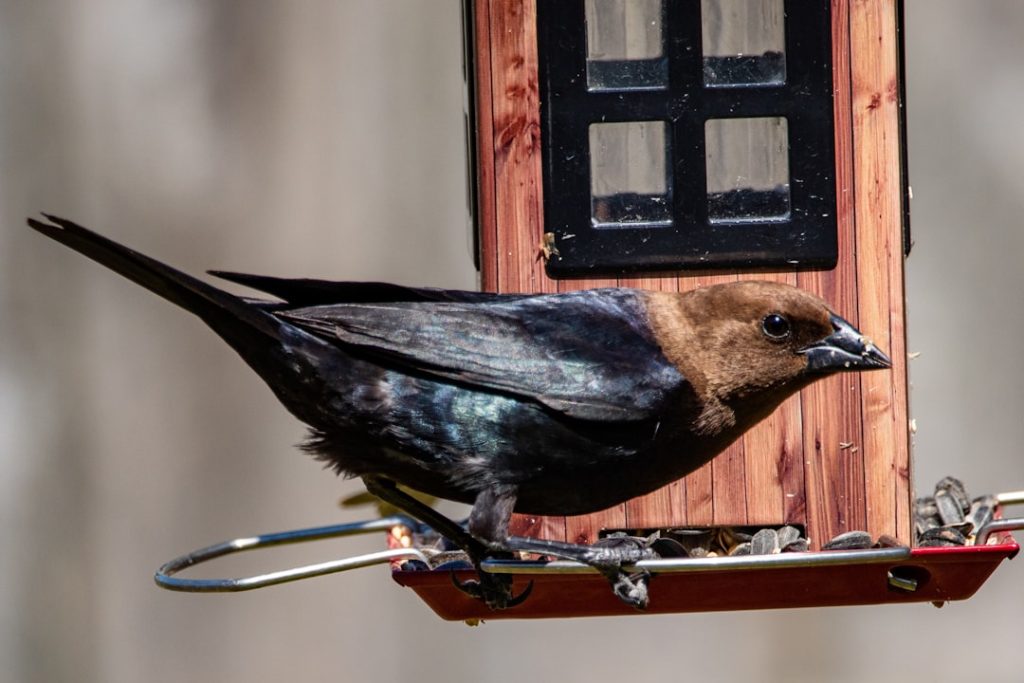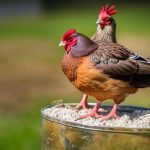When establishing a chicken farm, it is essential to thoroughly research and understand local regulations and zoning laws. Different jurisdictions have varying rules regarding chicken keeping, including permit requirements, zoning restrictions, and limits on the number of chickens allowed per acre. Compliance with these regulations is crucial to avoid potential fines or forced closure of the farm.
Consideration must also be given to the farm’s impact on the surrounding community. Noise and odor issues are common concerns associated with chicken farming. Some areas have specific regulations addressing these factors.
By understanding and adhering to local laws and guidelines, chicken farm operators can ensure legal compliance and maintain positive relationships with neighboring residents. Proactive research and planning in these areas are vital steps in establishing a successful and legally compliant chicken farm operation.
Table of Contents
- 1 Assessing the available space and resources
- 2 Choosing the right breed and number of chickens
- 3 Considering the noise and odor impact
- 4 Providing proper housing and shelter
- 5 Managing waste and keeping a clean environment
- 6 Ensuring the health and well-being of the chickens
- 7 FAQs
- 7.1 How many chickens can I keep in my garden?
- 7.2 What factors should I consider when determining how many chickens to keep in my garden?
- 7.3 Are there any regulations or restrictions on keeping chickens in a garden?
- 7.4 What are the space requirements for keeping chickens in a garden?
- 7.5 What are the benefits of keeping chickens in a garden?
Key Takeaways
- Local regulations and zoning laws must be understood and followed before starting a chicken coop to avoid legal issues.
- Assess the available space and resources to ensure that there is enough room for the chickens to roam and access to food and water.
- Choose the right breed and number of chickens based on the available space and the purpose of raising chickens.
- Consider the potential noise and odor impact on neighbors and take measures to minimize these effects.
- Provide proper housing and shelter for the chickens to protect them from predators and harsh weather conditions.
Assessing the available space and resources
Space and Water Requirements
Chickens require a certain amount of space to roam and forage, so it is essential to ensure that your property can accommodate the number of chickens you plan to keep. Additionally, access to clean water is vital for the health and well-being of the chickens, so it is important to have a reliable water source on your property.
Feed and Nutrition
Chickens require a balanced diet that includes grains, protein, vitamins, and minerals, so it is important to have access to quality feed for your chickens.
Shelter and Fencing
Providing proper shelter and fencing is essential for protecting the chickens from predators and providing them with a safe and comfortable environment. By thoroughly assessing the available space and resources, you can ensure that your chicken farm has everything it needs to thrive.
Choosing the right breed and number of chickens

When starting a chicken farm, it is important to carefully consider the breed and number of chickens that you plan to keep. Different breeds of chickens have different characteristics and requirements, so it is important to choose a breed that is well-suited to your specific needs and environment. For example, some breeds are known for their egg-laying abilities, while others are prized for their meat production.
Additionally, some breeds are more cold-hardy or heat-tolerant than others, so it is important to consider the climate in your area when choosing a breed. In addition to choosing the right breed, it is important to carefully consider the number of chickens that you plan to keep. Overcrowding can lead to stress, disease, and aggressive behavior among the chickens, so it is important to ensure that you have enough space for the number of chickens you plan to keep.
It is also important to consider the purpose of your chicken farm – whether it is for egg production, meat production, or both – when determining the number of chickens to keep. By carefully choosing the right breed and number of chickens for your farm, you can ensure that your chickens are healthy, productive, and well-suited to your specific goals.
Considering the noise and odor impact
One important consideration when starting a chicken farm is the potential impact of noise and odor on the surrounding community. Chickens can be noisy animals, especially during certain times of day such as dawn and dusk when they are most active. Additionally, chicken manure can produce strong odors if not managed properly.
It is important to consider these factors when planning your chicken farm and take steps to minimize any potential impact on your neighbors. There are several strategies for managing noise and odor on a chicken farm. For example, locating the chicken coop away from neighboring properties can help reduce the impact of noise on surrounding residents.
Additionally, implementing proper waste management practices such as regular cleaning of the coop and proper disposal of manure can help minimize odor issues. It is also important to communicate with neighbors about your plans to start a chicken farm and address any concerns they may have about noise or odor. By considering the potential impact of noise and odor and taking proactive measures to address these issues, you can ensure that your chicken farm operates in harmony with the surrounding community.
Providing proper housing and shelter
Proper housing and shelter are essential for the health and well-being of chickens on a farm. The chicken coop should provide protection from predators, extreme weather conditions, and other potential hazards. It should also be well-ventilated to ensure good air quality for the chickens.
The coop should be spacious enough to allow for natural behaviors such as roosting and nesting. Additionally, nesting boxes should be provided for hens to lay their eggs in a safe and comfortable environment. In addition to the coop, outdoor space is also important for chickens to roam and forage.
A fenced-in area can provide protection from predators while allowing the chickens to access fresh grass and insects. Providing proper housing and shelter for chickens not only ensures their physical well-being but also contributes to their overall happiness and productivity. By creating a safe and comfortable environment for your chickens, you can help them thrive and lead healthy lives.
Managing waste and keeping a clean environment

Preventing Odor Issues and Maintaining Air Quality
Regular cleaning of the coop and removal of manure are essential for preventing odor issues and maintaining good air quality for the chickens.
Environmental Contamination Prevention
Additionally, proper disposal of manure is important for preventing environmental contamination. Composting is a common method for managing chicken manure on a farm. Composting not only helps reduce odor but also produces nutrient-rich fertilizer that can be used to improve soil quality on the farm.
Establishing a Regular Cleaning Schedule
It is important to establish a regular cleaning schedule and proper waste disposal practices to ensure a clean environment for both the chickens and the surrounding area. By managing waste effectively and keeping a clean environment, you can create a healthy and sustainable living space for your chickens.
Ensuring the health and well-being of the chickens
Ensuring the health and well-being of the chickens is paramount for a successful chicken farm. This includes providing a balanced diet, access to clean water, proper housing, and regular veterinary care. A balanced diet that includes grains, protein, vitamins, and minerals is essential for maintaining good health in chickens.
Access to clean water is also crucial for hydration and overall well-being. Regular veterinary care is important for monitoring the health of the chickens and addressing any potential issues promptly. This may include vaccinations, parasite control, and treatment for any illnesses or injuries that may arise.
Additionally, providing opportunities for natural behaviors such as roosting, nesting, and foraging can contribute to the overall well-being of the chickens. By prioritizing the health and well-being of your chickens, you can ensure that they lead happy, healthy lives on your farm. In conclusion, starting a chicken farm requires careful consideration of local regulations, available resources, breed selection, noise and odor impact, housing and shelter provision, waste management practices, as well as ensuring the health and well-being of the chickens.
By thoroughly addressing each of these aspects, you can create a successful and sustainable chicken farm that provides a safe and comfortable environment for your feathered friends while also maintaining positive relationships with your community.
If you’re considering keeping chickens in your garden, you may also be interested in learning about the best kind of coop for chickens. Poultry Wizard has a helpful article on what kind of coop is best for chickens, which can provide valuable information on creating a suitable living space for your feathered friends.
FAQs
How many chickens can I keep in my garden?
You can typically keep 2-4 chickens in a small garden, 5-10 in a medium-sized garden, and 10+ in a large garden, depending on local regulations and the amount of space available for the chickens to roam.
What factors should I consider when determining how many chickens to keep in my garden?
When determining how many chickens to keep in your garden, consider the size of your garden, local regulations, the amount of space each chicken needs to roam, and the resources available to care for the chickens, such as food, water, and shelter.
Are there any regulations or restrictions on keeping chickens in a garden?
Regulations and restrictions on keeping chickens in a garden vary by location. Check with your local government or homeowners’ association to determine if there are any regulations or restrictions that apply to keeping chickens in your garden.
What are the space requirements for keeping chickens in a garden?
Chickens typically need 2-3 square feet of space in a coop and 8-10 square feet of outdoor space per chicken to roam. However, these space requirements can vary based on the breed of chicken and local regulations.
What are the benefits of keeping chickens in a garden?
Keeping chickens in a garden can provide a sustainable source of fresh eggs, natural pest control, and fertilizer for the garden. Additionally, chickens can be enjoyable pets and provide a sense of self-sufficiency.
Meet Walter, the feathered-friend fanatic of Florida! Nestled in the sunshine state, Walter struts through life with his feathered companions, clucking his way to happiness. With a coop that’s fancier than a five-star hotel, he’s the Don Juan of the chicken world. When he’s not teaching his hens to do the cha-cha, you’ll find him in a heated debate with his prized rooster, Sir Clucks-a-Lot. Walter’s poultry passion is no yolk; he’s the sunny-side-up guy you never knew you needed in your flock of friends!







